2019 Asian Sites of Conscience Meeting: ‘Reconstructing Memories: Objects, Narratives and the Legacies of Colonialism’ Report
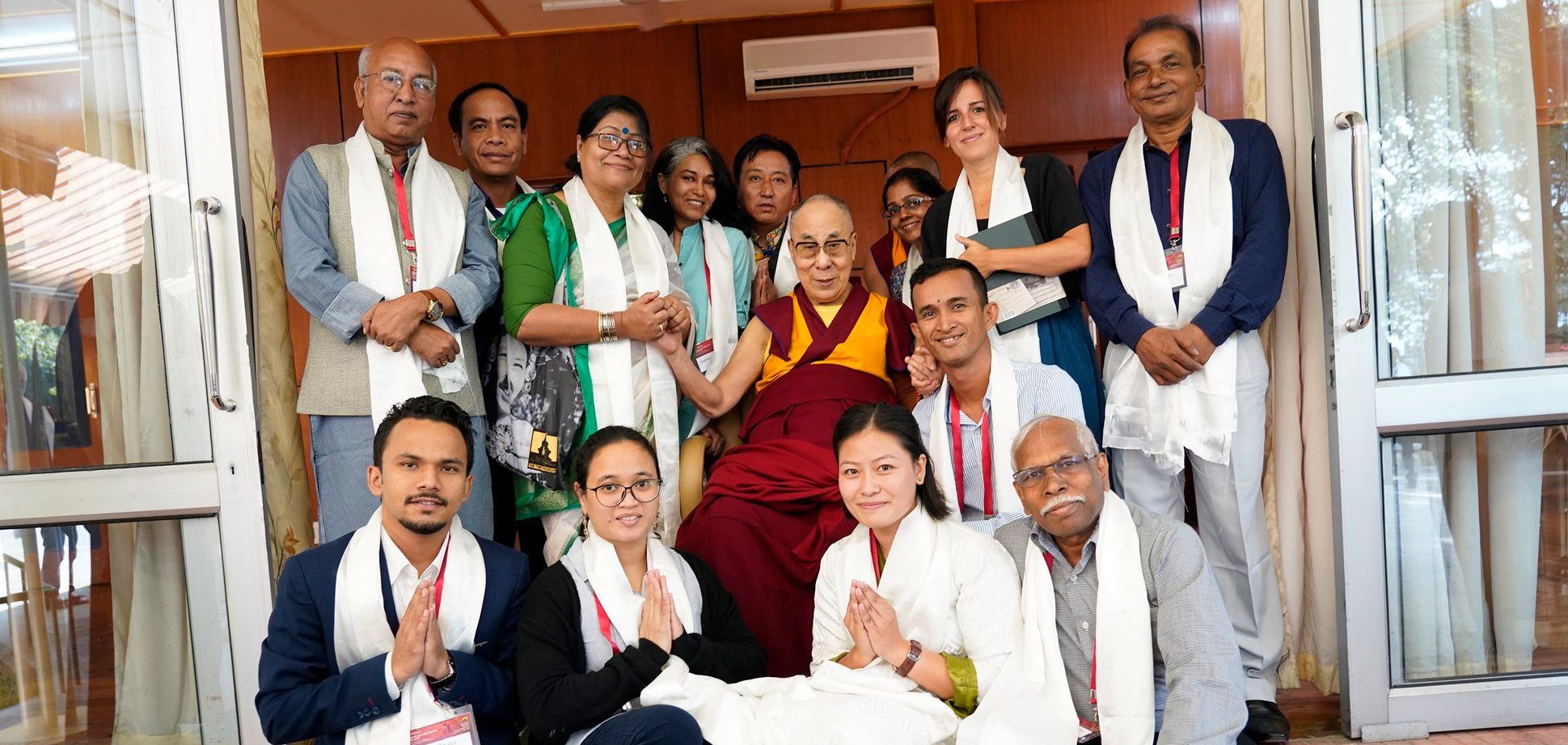
Dharamshala: 2019 Asian Sites of Conscience meeting with the topic ‘Reconstructing memories: Objects, Narratives and the Legacies of Colonialism’ was held from 10th to 14th September 2019. In collaboration with International Coalition of Sites of Conscience, the Tibet Museum under the Department of International Relations (DIIR) of Central Tibetan Administration (CTA) organised & hosted the meeting in Dharamshala. Along with eight Tibet Museum staff, twelve representatives of museums, historical sites, and memorial initiatives from seven Asian countries participated in this meeting. The registration process and welcome dinner were done on the 10th of September.
On September 11, 2019, the first day of the program propitiously began with a blessing and an audience with His Holiness the 14th Dalai Lama in his resident. During their audience, His Holiness gave a brief introduction on the origin of Tibetan religion saying, “Tibetan Buddhist philosophy mainly inspired by Indian Nalanda tradition.” He also shed light on Buddhism as a religion that is based on logic and reasoning and explained the connection of religious history with other Asian countries.
The opening ceremony of the meeting was initiated with the welcome note and a brief introduction on new Tibet Museum given by Tashi Phuntsok, Director of The Tibet Museum followed by Silvia Fernandez, Regional manager of International Coalition of Sites of Conscience.
Chief guest Kalon Karma Yeshi of Finance department and special guest secretary Tsewang Gyalpo Arya of DIIR, CTA also addressed the opening ceremony focusing on the importance of museum which acts as a mirror to portray truth and justice.
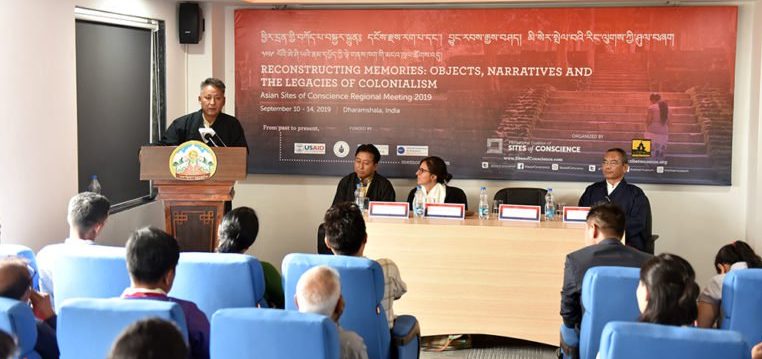
Chief guest Kalon Karma Yeshi addressing the inauguration of “2019 Asian Sites of Conscience Regional Meeting”. Photo/Tenzin Phende/CTA
Each representative from Museum of Tibetan Medical and Astrology Institute, the Norbulingka Institute and Himalayan Buddhist Library and Culture Centre (Nepal) gave a short introduction on their respective museums and proceeded with the question and answer round.
After the first half of the day, roundtable session on “Tibetan Civil Society Actions for human rights, democracy and freedom” was explained via PowerPoint presentation, short videos and question and answer round by the representative from the Tibetan Youth Congress, the Tibetan Women’s Association, the National Democratic Party of Tibet, the Gu-Chu-Sum Movement of the former political prisoners and Student for a Free Tibet.
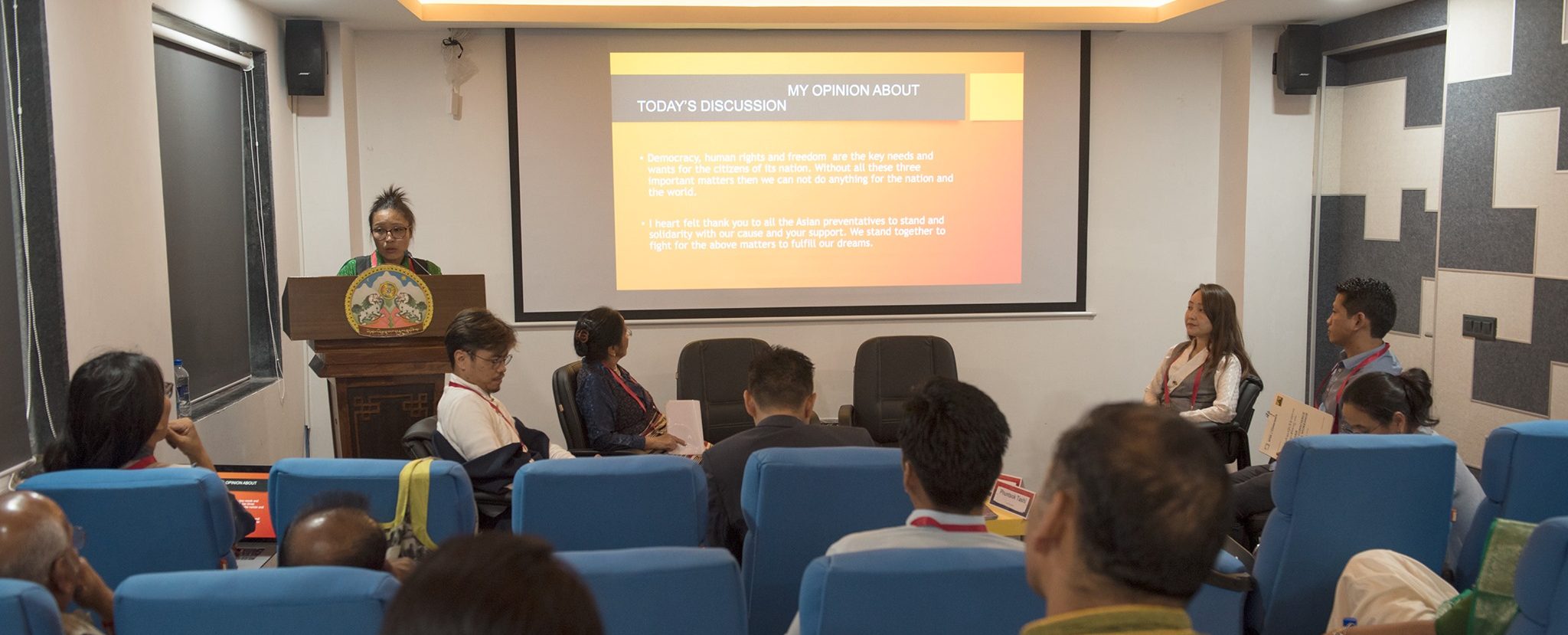
Mrs. Tsering Yangzom of National Democratic Party of Tibet (NDPT) introducing NDPT and its role as a civil society group. Photo Tenzing Ramjam/The Tibet Museum
Later in the evening the delegates and other participants were taken for a tour to the current Tibet Museum near the Dalai Lama’s temple followed by warm group dinner.
On September 12, 2019, the second day of the meeting started with a quick tour to the Museum of Tibetan Medical and Astrology Institute and the Museum of Library of Tibetan Work and Archives. The program proceeded with a panel discussion on ‘Confronting a Colonialist Past: The Tibetan Experience’. In this panel discussion, Secretary Tsewang Gyalpo Arya of DIIR gave a brief introduction on Tibetan history and Kaydor Aukatsang, SARD Director/Chief Resilience officer spoke on Tibetan educational structure, Tibetan refugee settlement and challenges faced in present and might in future. Thinlay Chukki, Special appointee for Human Rights, Tibet Bureau, Geneva, Switzerland spoke on China’s Neo-colonialism.
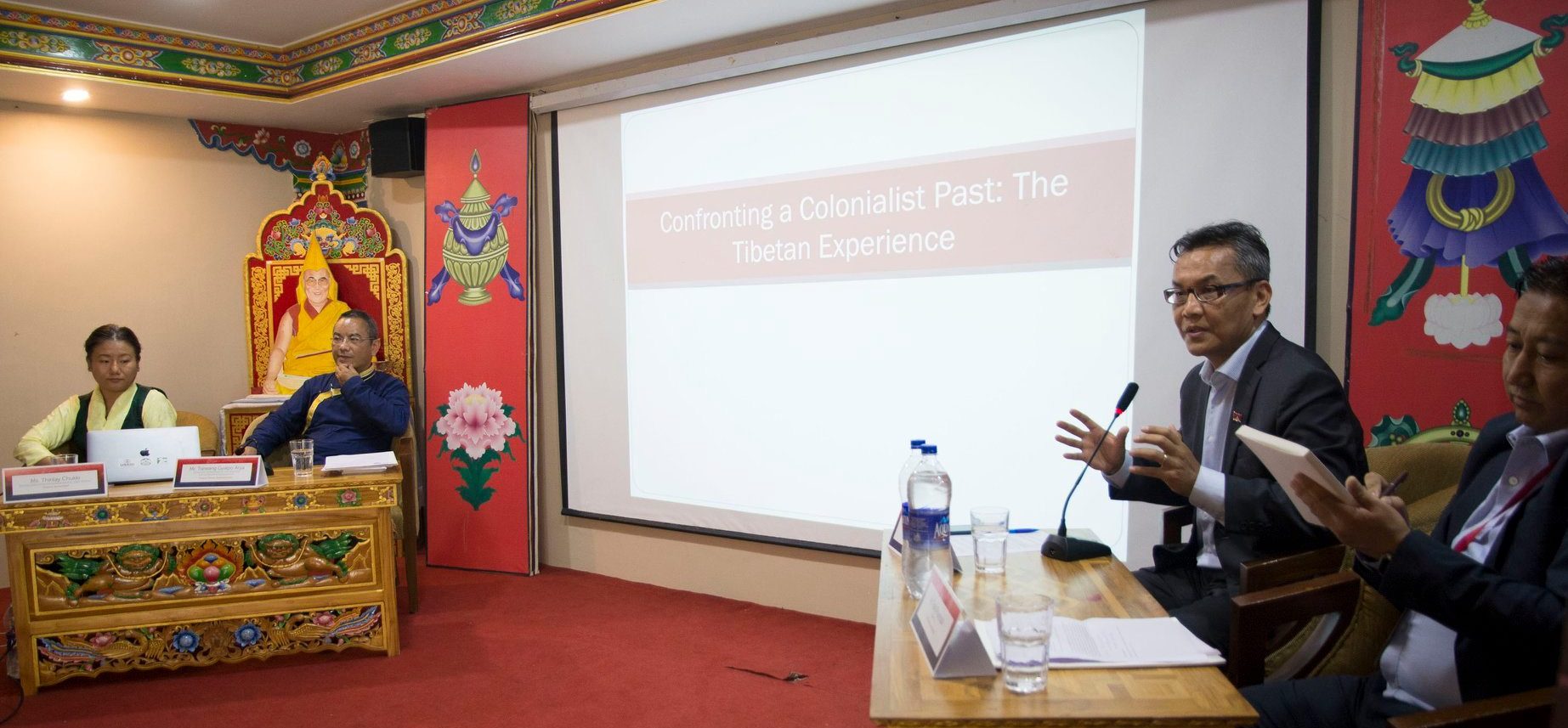
Kaydor Aukatsang, Director of SARD/Cheif Resilience officer speaking at the day 2 of the Asian Sites of Conscience regional meeting 2019
The later part of the day progressed with workshops on the Object. Kate Turner from ‘Healing through Remembering’ (Northern Ireland) gave a short presentation on the personification of objects that can utter its story and how to reconstruct a scenario via objects. She further gave an example; brick (used as a weapon during that time) and a bin lid (people at that time used that to alarm others when they got attacked), a simple thing that can reconstruct the incident that happened in the Ireland conflict back in history.
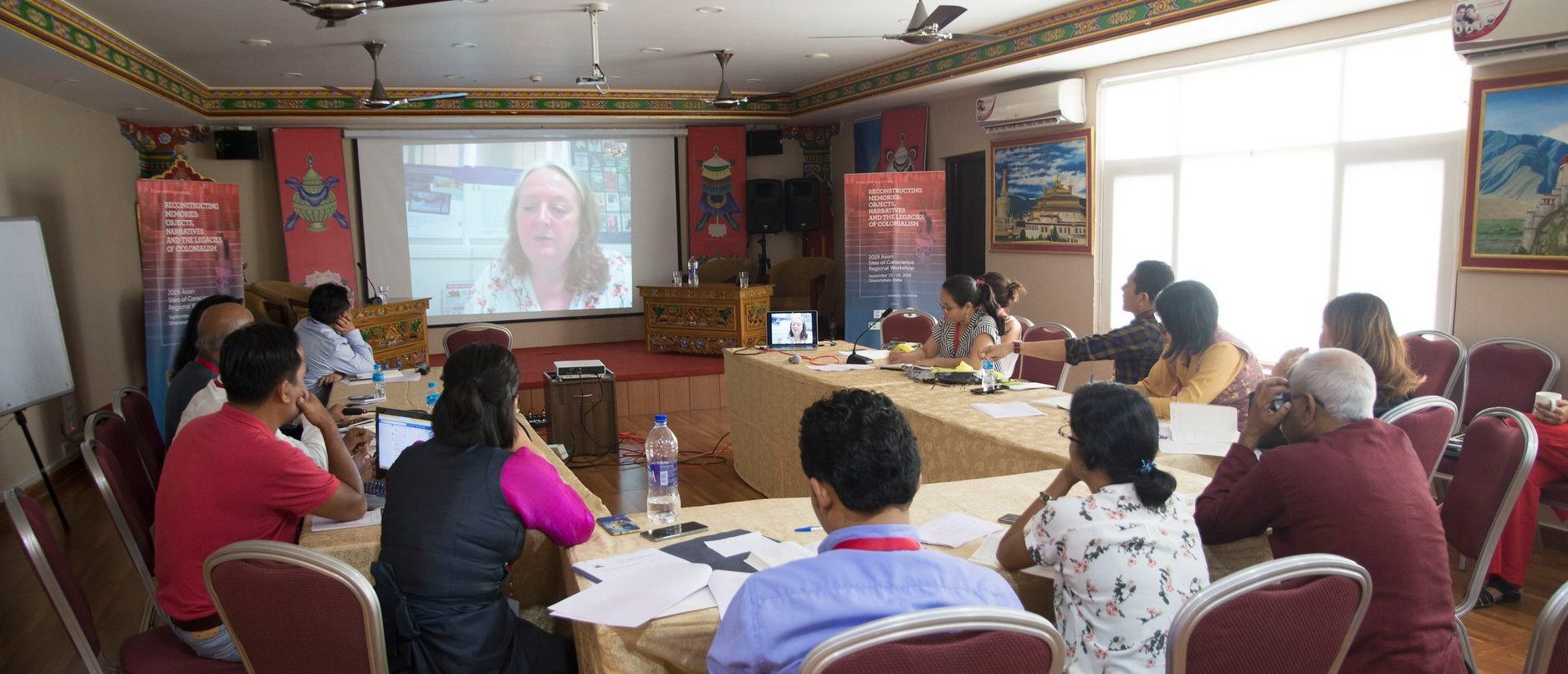
Workshops on objects by Kate Turner, Healing through remembering, Northern Ireland. Photo Tenzing Ramjam/The Tibet Museum
Rafiqul Islam, program coordinator of Liberation War Museum, Bangladesh explained on how to build a museum and the experience of their museum and after that via Skype Linda Norris of Sites of Conscience gave a presentation on the types of Museum visitors and how to indulge with them for their better experience.
On September 13, 2019, Silvia Fernandez, Regional manager of International Coalition of Sites Of Conscience and Mitzi Austero, Nonviolence International Southeast Asia (Philippines) shed light on the points regarding priorities, issues, shared values, principles of unity and how to strengthen the network for the advancement of the regional project.
The day was focused mainly on the re-envisioning the Asian Sites of Conscience. It continued with the panel on ‘Confronting a Colonial Past of Sri Lanka, Cambodia and Philippines’ delivered by Muthulingam Periyasamy, director of Institute of Social Development-Tea Plantation Workers Museum (Sri Lanka), Khet Long, Director of Peace Institute of Cambodia and Mitzi Austero, Nonviolence International Southeast Asia (Philippines).
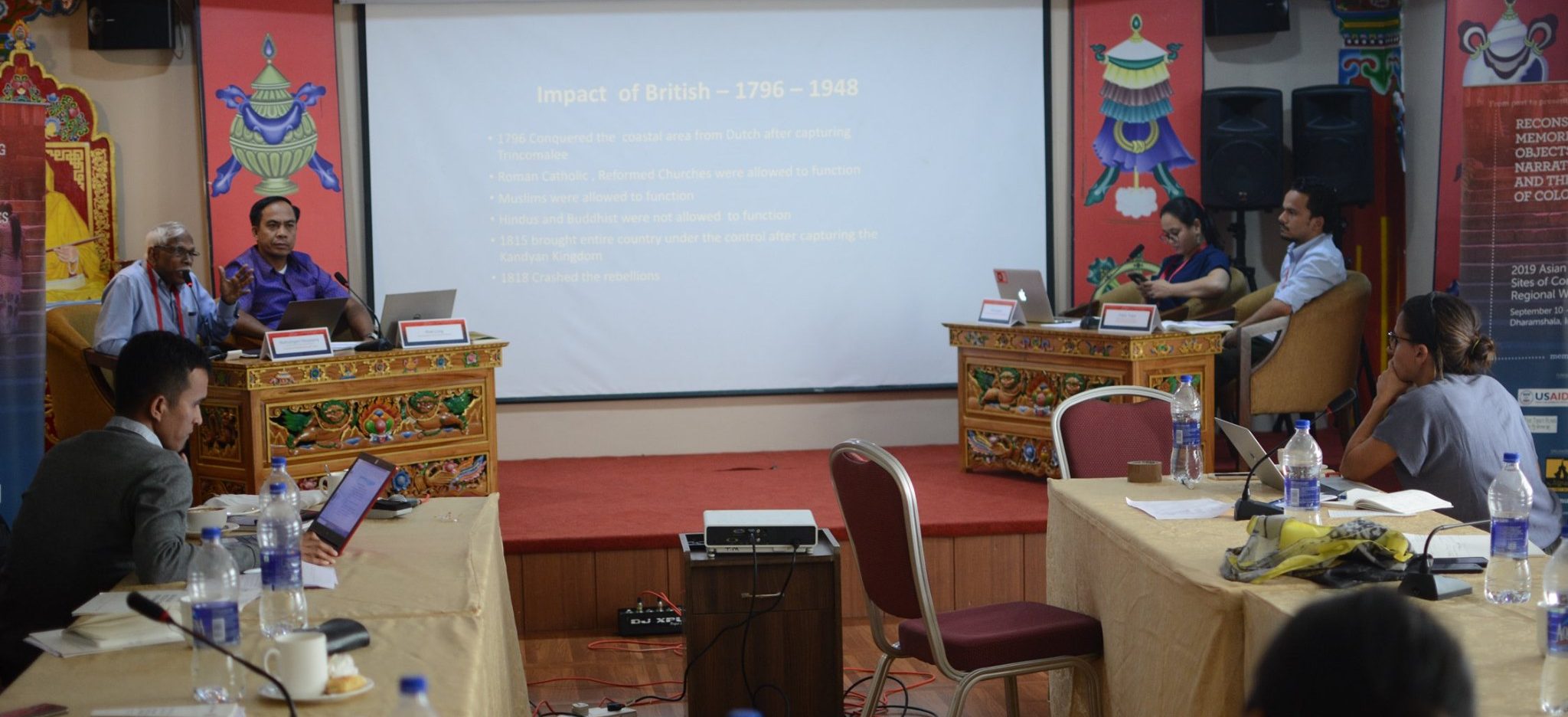
Muthulingam Periyasamy, director of Institute of Social Development-Tea Plantation Workers Museum (Sri Lanka) delivering his presentation
After that Radhika Hettiarachchi, Director of Herstories Archives, Sri Lanka facilitated a workshop on the practice of collecting oral histories from the ground or primary level.
After lunch, there was also a workshop focusing on the use of dialogue via connecting past to the present, how dialogue is inclined more towards understanding than the debate that is for advocacy and winning. Brandon Paynter of International Coalition of Sites of Conscience presented workshop through Skype focusing on the topic relating ‘the four truth’ namely, forensic truth, personal truth, social and reconciliatory truth. He also gave the workshop on how to ask a better question and along with that Sokkoeun Man of Youth For Peace, Cambodia gave a presentation on his field of work.
In the evening, after the conclusion notes from Silvia Fernandez, Tashi Phuntsok, Director of the Tibet Museum extended the word of gratitude to International Coalition of Sites Of Conscience for honouring the Tibet Museum to host the ASOC meeting this year thereby providing workshops/training to expand the knowledge on different Museums around Asia. He also thanked the participants for their keen interest to learn more about Tibet and requested them to represent Tibet when they reach back to their own country.
~Reported by Kunga Choedon
